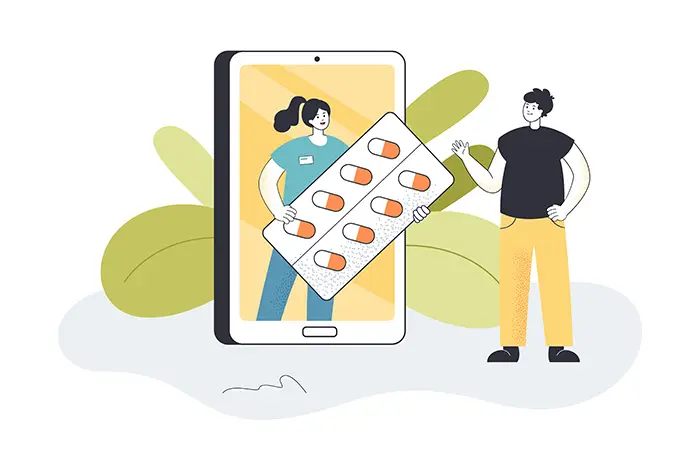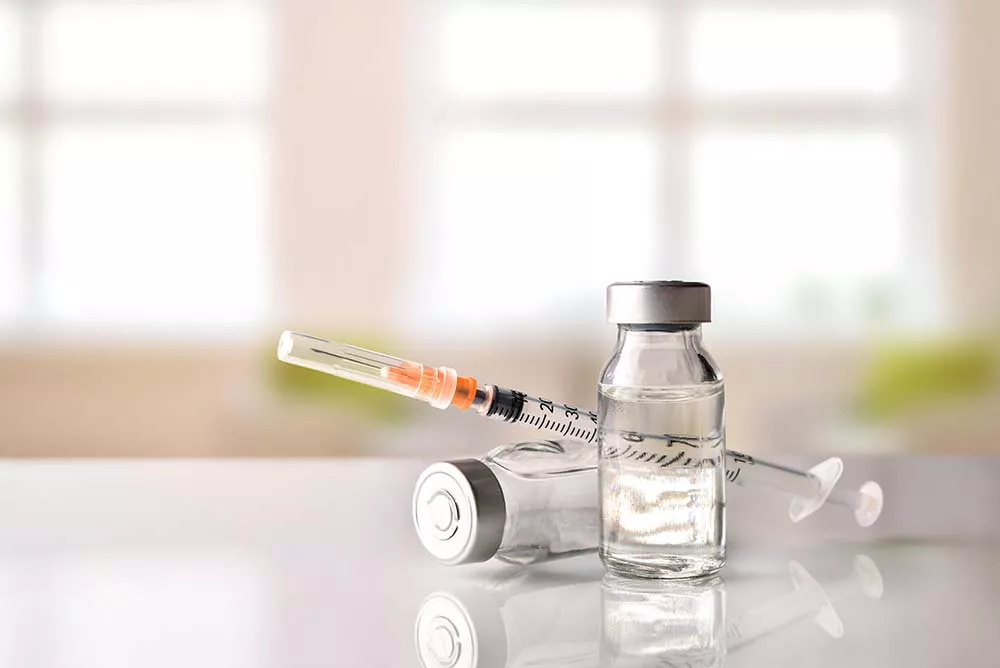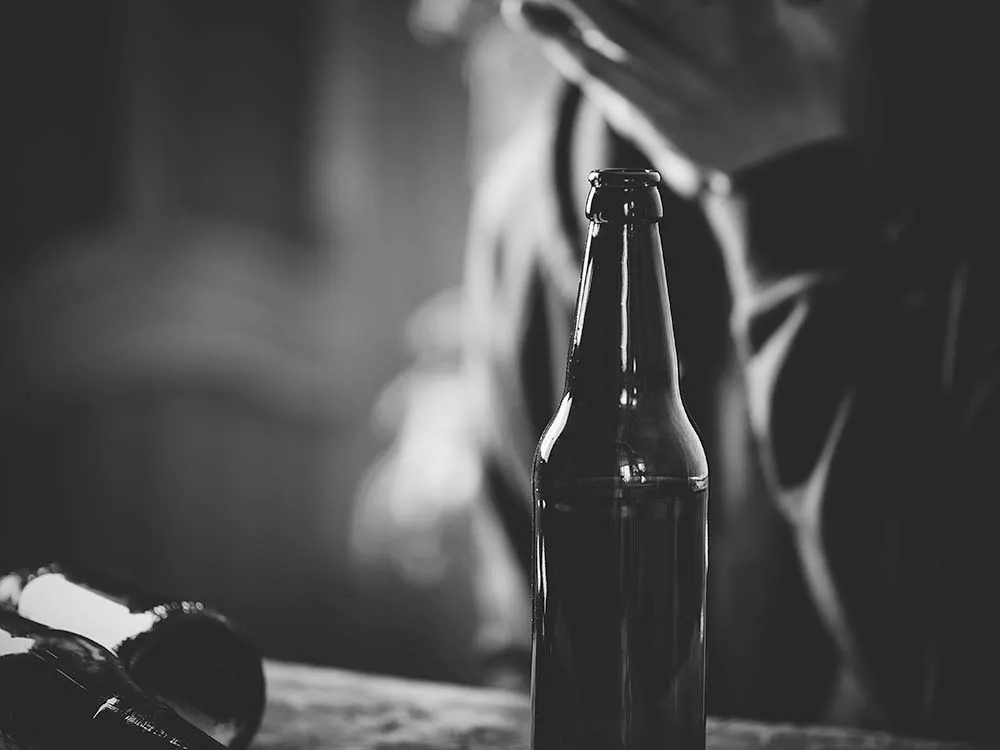Alcohol cravings are not a sign of weakness or lack of willpower. They are a physiological response resulting from the brain’s adaptation to alcohol and its effects. With the right strategies and support, you can learn to manage and reduce these cravings.
Natural tips and methods can go a long way to help you curb cravings, but there are also treatment options that provide much-needed support to get you through the tough parts of your journey and empower you to keep going.
When you consume alcohol, it triggers the release of dopamine, a chemical in the brain responsible for feelings of pleasure and reward. Over time, your brain associates these pleasurable sensations with the act of drinking, leading to cravings whenever you encounter cues or situations linked to alcohol consumption.
Alcohol can also act on other receptors in the brain including serotonin, opioid and gamma-aminobutyric acid (GABA) receptors which improve mood and anxiety symptoms short-term but lead to a chemical imbalance over time. This imbalance can contribute to worsened anxiety and depression. It can intensify cravings and make it more challenging to resist the urge to drink.
Identifying and understanding your personal triggers is crucial in managing alcohol cravings. Triggers can be environmental, emotional, or situational, and they can vary from person to person. Some common triggers include:
By recognizing your triggers, you can develop strategies to avoid or cope with them more effectively.
Healthy coping techniques and natural remedies can be powerful allies in curbing alcohol cravings. Here are some effective strategies to consider:
Finding the right combination of techniques may take some experimentation. Even with the best natural strategies, alcohol cravings can sometimes be tough to handle. It’s okay to seek more support if you are having a hard time curbing your cravings this way. There are proven, evidence-based treatments that can help you manage them more effectively.
Evidence-based treatments are designed to work alongside your efforts, offering you additional tools to stay on track with your recovery. Treatments tend to work best when incorporated as part of a comprehensive recovery plan. Some common treatment options used to curb alcohol cravings are:
Certain medications have been shown to be effective in reducing alcohol cravings and helping to maintain sobriety. These medications work by altering the brain’s response to alcohol or producing unpleasant effects when alcohol is consumed, deterring further drinking.
These medications are usually prescribed as part of MAT (Medication Assisted Treatment), also called Medication for Alcohol Use Disorder (MAUD), which combines prescription drugs with therapy to help people overcome substance abuse issues. Medication helps manage uncomfortable symptoms while you focus on getting better.
Medications used to treat alcohol use disorder (AUD) include:
Eleanor Health offers a wide variety of options for medications to treat substance use and will work with you to determine the best medication and dosage that fits your lifestyle.
Cognitive Behavioral Therapy (CBT) helps you understand and change the patterns of thinking and behaviors that contribute to your problems, like alcohol cravings or anxiety. The idea is that our thoughts, feelings, and behaviors are interconnected. Sometimes, negative or unhelpful thoughts can lead to harmful behaviors so becoming more aware and able to manage thought patterns can improve feelings and problematic behaviors long-term.
In CBT, a counselor works with you to identify these negative thought patterns and teaches you how to challenge and replace them with more positive, realistic thoughts. This, in turn, helps you change your behavior and cope better with difficult situations. For example, if you often feel stressed and turn to alcohol as a way to cope, CBT can help you find healthier ways to manage that stress.
Counseling also provides a safe and supportive space to talk about your struggles without judgment or stigma. Knowing that someone understands what you’re going through can make a big difference in your journey.
Peer support from others with lived experiences related to alcohol or other substance use can help build self-efficacy and motivation for continuing to overcome cravings and meet goals. Additionally, it provides a resource for when cravings materialize that are hard to control along with more tangible approaches to avoiding triggers.
Peer support is evidence-based to reduce relapse, improve stressors contributing to cravings such as loneliness or lack of social support, and reduce harmful behaviors that are related to drinking.
These treatment options should be pursued under the guidance of a qualified healthcare professional or addiction specialist. They may be used in combination with other therapies and support systems for the best possible outcomes. Outpatient recovery programs like Eleanor Health provide comprehensive treatment services within a compassionate setting. Learn more about us and how to become a community member.
Cravings can persist for some time, even after achieving sobriety. However, with consistent effort and the implementation of effective coping strategies, the intensity and frequency of cravings often diminish over time.
Recovery is a journey, and setbacks or occasional cravings do not negate the progress you’ve made. By staying committed to your goals and seeking support when needed, you can develop the resilience and skills necessary to manage cravings effectively.
If you or a loved one is struggling with alcohol addiction and cravings, consider reaching out to Eleanor Health. As recovery specialists, we are ready to help you or your loved one get better, no matter where you are on your journey.
 Medications for Addiction Treatment: The Complete Guide
Medications for Addiction Treatment: The Complete Guide
 What Does Vivitrol (Naltrexone) Do?
What Does Vivitrol (Naltrexone) Do?
 Alcohol Addiction and Treatment Options
Alcohol Addiction and Treatment Options